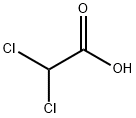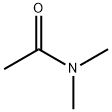2-Chloroethyl ether , 99% , 111-44-4
Synonym(s):
2,2′-Dichlorodiethyl ether;2,2′-Dichlorodiethyl ether, ß,ß′-Dichloroethyl ether;Bis(2-chloroethyl) ether
CAS NO.:111-44-4
Empirical Formula: C4H8Cl2O
Molecular Weight: 143.01
MDL number: MFCD00000975
EINECS: 203-870-1
PRODUCT Properties
| Melting point: | −47 °C(lit.) |
| Boiling point: | 65-67 °C15 mm Hg(lit.) |
| Density | 1.22 g/mL at 25 °C(lit.) |
| vapor pressure | 0.4 mm Hg ( 20 °C) |
| refractive index | n |
| Flash point: | 131 °F |
| storage temp. | Store at <= 20°C. |
| solubility | 0.01g/l |
| form | Colorless liquid |
| color | Colorless to Almost colorless |
| Odor | Sweet, like chloroform. |
| explosive limit | 0.8%(V) |
| Water Solubility | Slightly soluble. 1.72 g/100 mL |
| Merck | 14,3066 |
| BRN | 605317 |
| Henry's Law Constant | (x 10-5 atm?m3/mol):
124.7, 15.8, 72.0, 12.5, and 1.38 at 10, 15, 20, 25, and 30 °C, respectively (EPICS, Howe et al.,
1987) |
| Exposure limits | NIOSH REL: TWA 5 ppm (30 mg/m3), STEL 10 ppm, IDLH 100 ppm;
OSHA PEL: C 15 ppm (90 mg/m3); ACGIH TLV: TWA 30 mg/m3, STEL 60 mg/m3. |
| Dielectric constant | 20.789999999999999 |
| Stability: | Stable. Combustible. Incompatible with strong oxidizing agents. |
| InChIKey | ZNSMNVMLTJELDZ-UHFFFAOYSA-N |
| LogP | 1.12-1.56 at 20℃ |
| CAS DataBase Reference | 111-44-4(CAS DataBase Reference) |
| IARC | 3 (Vol. 9, Sup 7, 71) 1999 |
| NIST Chemistry Reference | Beta,beta'-dichloroethyl ether(111-44-4) |
| EPA Substance Registry System | Bis(2-chloroethyl) ether (111-44-4) |
Description and Uses
Dichloroethyl ether is a clear, colorless liquidwith a pungent, fruity odor. It is also described as having achlorinated solvent-like odor. Molecular weight=143.02;Boiling point=176-178℃; Flash point=55℃;Autoignition temperature=369℃; Explosive limits:LEL=2.7%; UEL=unknown. Hazard Identification(based on NFPA-704 M Rating System): Health 3,Flammability 2, Reactivity 1. Insoluble in water.
Bis(2-chloroethyl)ether (BCEE) is used as ascouring agent for textiles; as a dewaxingagent for lubricating oils; as a soil fumigant;as a solvent for resins, oils, and lacquers; andin organic synthesis.
Safety
| Symbol(GHS) |    GHS02,GHS06,GHS08 |
| Signal word | Danger |
| Hazard statements | H226-H300+H310+H330-H351 |
| Precautionary statements | P201-P202-P210-P280-P303+P361+P353-P304+P340+P310 |
| Hazard Codes | T+,T,F |
| Risk Statements | 10-26/27/28-40-39/23/24/25-23/24/25-11 |
| Safety Statements | 27-28-36/37-45-7/9-28A-16 |
| RIDADR | UN 1916 6.1/PG 2 |
| OEB | A |
| OEL | TWA: 5 ppm (30 mg/m3), STEL: 10 ppm (60 mg/m3) [skin] |
| WGK Germany | 2 |
| RTECS | KN0875000 |
| Autoignition Temperature | 365 °C |
| TSCA | Yes |
| HazardClass | 6.1 |
| PackingGroup | II |
| HS Code | 29091900 |
| Hazardous Substances Data | 111-44-4(Hazardous Substances Data) |
| Toxicity | LD50 orally in rats: 75 mg/kg (Smyth, Carpenter) |
| IDLA | 100 ppm |
| Limited Quantities | 100ml (liquid) or 0.5 Kg (solid) |
| Excepted Quantities | Max Inner Pack (1g or 1ml) and Max Outer Pack (500g or 500ml) |



